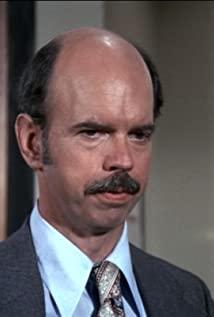Because the theme itself is interesting enough, and the audiovisual language is also superior, "Ten Days in Crisis" can be among the best in the same type of film.
---------------------------------------- This article has spoiler content ----- -----------------------------------
Audiovisual:
The audio-visual techniques for creating tension are quite proficient. For example, when a book enthusiast goes out on a rainy night, the writer waits in the room after taking a knife: the camera is pushed from the end of the bed to the writer’s face, and there are clear footsteps in the background and the sound of opening and closing doors as well as the rhythm of the soundtrack. Gradually speed up the pitch and gradually rise, and finally stop when it freezes on the writer’s face, and the soundtrack becomes high pitch white noise... Because of the parallel editing when the writer left the room the previous time, the book fans were driving to the front of the house-upstairs-opening the door. -The whole process of entering the room is presented sufficiently complete and detailed, so the effect of this section is quite good, because the audience can feel the kind of psychological distance just by relying on the plot and the lens that appeared in the film by listening to the background sound effects.
But there are also bad parts of the mirror, such as the section where the sheriff finds clues in the snow after finding a broken tree. The end part of the camera is shifted to the right to bring the tires in the snow into the mirror, showing the audience that the sheriff missed this section. Information-this panning lens implies the photographer's movement, making the information display too deliberate, thereby destroying the sense of immersion.
Performance:
Casey Bates won the Oscar and Golden Globe Awards for Best Actress for her role as a book fan in this film. Nevertheless, I still have reservations, because the textual basis of the fan character in this film shows that she can have more levels. Although Casey Bates' performance does show the complex images of the characters-including nurses, book fans, crazy book fans, murderers, impersonating writers, etc.-sufficiently complete, but this is only one direction, that is, diversity. However, it is clearly written in the film text. Her role has a very complicated history (in her newspaper clippings, a series of "curvatures" of murders from her father killing are shown). The various stages of the character presentation dig out more details to enrich the character hierarchy, but fail to do so.
in addition:
In fact, the most interesting part of the whole film is the back of the middle, the sheriff bought a bag of Misery's pocket books and said a few words after receiving a call from Jim who was not present at the police station. The lines are as follows:
"Hello, Jim. What's doin'?"/"Jim, how are you?"
"Jim, we've been through this before."/"We have already said that"
"If you're gonna have benches out in front of your store,"/"If you're gonna have benches out in front of your store,"
"People are gonna want to sit on'em"/"People are gonna want to sit on'em"
"Well, I don't like him, either,"/"I don't like him either"
"But I'm not gonna come over there and tell him to move."/"But I'm not gonna come over there and tell him to move."
"Give my best to Denise. Bye."/"Greetings to your wife for me, goodbye"
These few sentences can almost be regarded as the sheriff's monologue (because Jim on the other end of the phone has no lines), and obviously has no connection with other plots. This paragraph can be regarded as a freehand for the director. So what does this idle pen mean? Let's think of it like this: The first and last two sentences are ignored. The first sentence "We have already said" means that the core idea of this monologue will run through the whole film and appear repeatedly; the two sentences "If you... sit on it" mean that , The author writes any work, no matter what its original purpose, once the creation is completed, how the work is treated is out of his control. The subsequent "I don't like... let him go" shows an objective standpoint towards comments. No matter what the work is evaluated, the author can only bear it silently.
This line, I guess it was written in Stephen King's original work. And undoubtedly this is the finishing touch of the film. Especially for the ending part, when the sheriff (who said the above monologue) was killed, the writer proposed to finish writing the ending...until he faced the book fans, picked up fuel and matches to burn the secrets in those books-just It's like Jim built a bench, then faced the person who came to find a seat, and smashed the chair-and the writer said "I learned it from you."/"I learned it from you" means, If you hadn't forced me to burn my new book before, I wouldn't burn Misery Return like I am now.
...
How cute! This is simply Stephen King's portrayal of his own situation and the threat he poses to his readers-don't tell me how to write a book (presumably there are a lot of such things), and I won't write again! This is obviously the original work, including the core theme of the film-although "you should face the evaluation objectively after the work is released" is true, but "I just can't stand you stupid fans who keep beeping me, don't bother me" It was still secretly passed through the text.
Fun, hehe~
View more about Misery reviews











